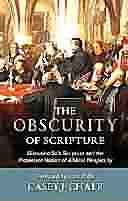

The Lord’s prayer is probably the most well-known text in the western world, and in the 2nd verse/line Christ says “thy kingdom come, thy will be done, on earth as it is in heaven” or, to paraphrase, “In heaven, thy kingdom is come and thy will is done; so could we get that here on earth, please?” but of course we don’t, and Christ famously complained “why hast thou forsaken me?” when the crazy jews and romans he had provoked crucified him.
Of course, you might object, that doesn’t mean He doesn’t believe in God. But it means, at least, that God is in heaven, we’re on earth, and never the twain shall meet. The christian theology was all cooked-up after His death, and we’re supposed to believe it because He rose from the dead. But that was not so uncommon in those days; Jesus Himself raised at least a few dead people, didn’t he?
So perhaps it’s just a pitiful plea to the Lord of the universe, that he fix a few things, like our daily bread.
My daily saints book, © 1993-1995 by Catholic Book Publishing Co. N.Y., recounts the story of St. Apollonius who was beheaded by the Roman senate around 186 A.D. He told the senate “we have hastened to honor Him because we have learned lofty commandments from Him. ... Yet if it were a delusion (as you assert) which tells us that the soul is immortal, and that there is a judgment after death and a reward of virtue at the resurrection, and that God is the Judge, we would gladly be carried away by such a lie as that, which has taught us to lead good lives awaiting the hope of the future even while suffering adversities.” ... Good to know, eh?

Luther decided that popes and bishops weren’t necessary to read the plain readily-understood Bible — this perhaps spurred-on by the advent of printing technology, so that the Lutheran in the street could read it.
That “readily-understood” has its own name in modern times: “perspicuity”, which is used, in some kind of secret decoder thing to describe the obvious clarity of the Holy Bible. In my pitiful ascent of the walls of ignorance, I read much of The Obscurity of Scripture: Disputing Sola Scriptura and the Protestant Notion of Biblical Perspicuity by Casey Chalk — and I was entertained! ... I don’t know if Martin Luther actually used the word “perspicuity” around 10/31/1517 when he nailed his theses to the door, but all protestants apparently are supposed to agree with his contention that we don’t need no stinkin’ popes or bishops to understand the Bible, because it’s perfectly obvious to any literate man. Which, given the context, probably didn’t include women and did mean reading it in German. ... Catholics consider this contention laughable and don’t even bother mentioning it much any more because it’d likely hurt feelings in the unending ecumenical mutterings, but of course Mr. Chalk is a fanatical Catholic convert.
The Lord of the universe has, apparently, a love of observing his faithful die in horrible ways and indeed, the “martyr” often confirms his or her saintliness in that way. I won’t even rail about that one, it’s so offensive....
I remember a sermon by Billy Graham, commemorating 9/11 probably, where he allowed that he couldn’t explain why God permitted evil — as if it were a well-known knotty theological problem that puzzled even the very finest theologians. Instead of one obvious reason there are so many atheists.
But really, it’s irking that the fairy tale is so defective. It’s like those emails I get where an important politician claims he desperately needs my input on a bogus survey. ... Amateur night shoddy....